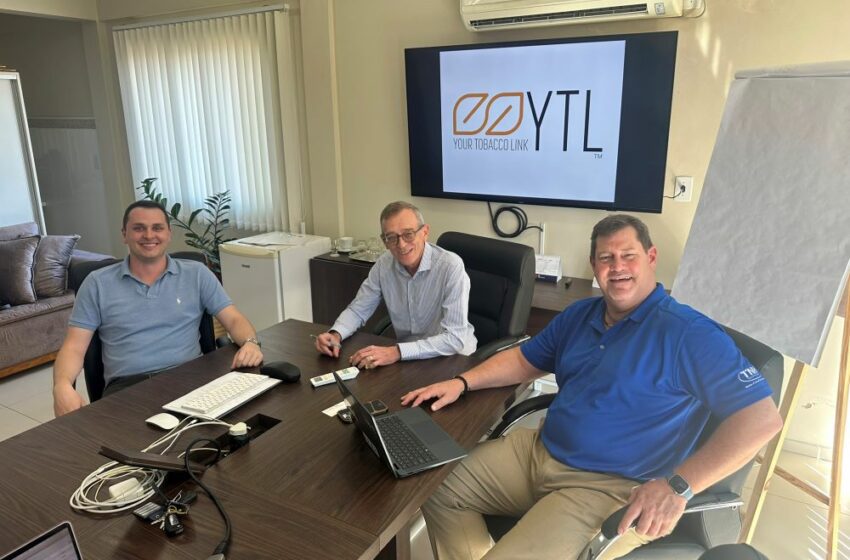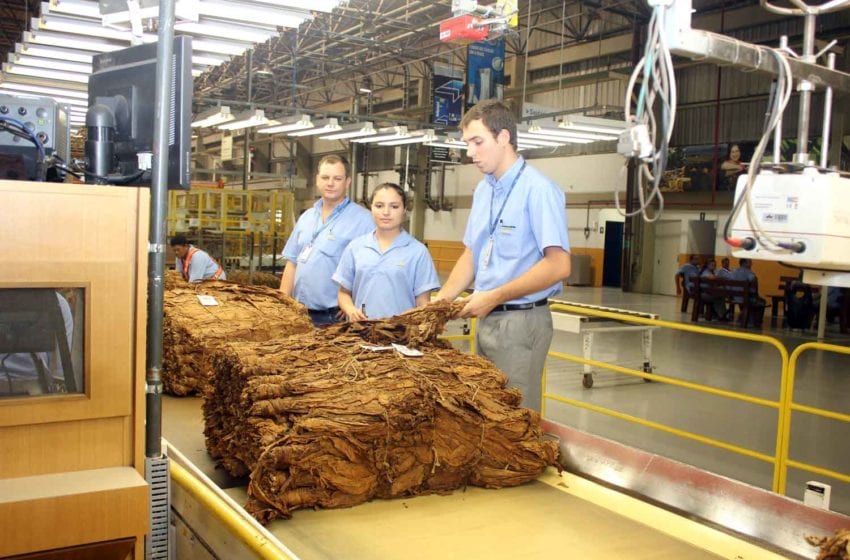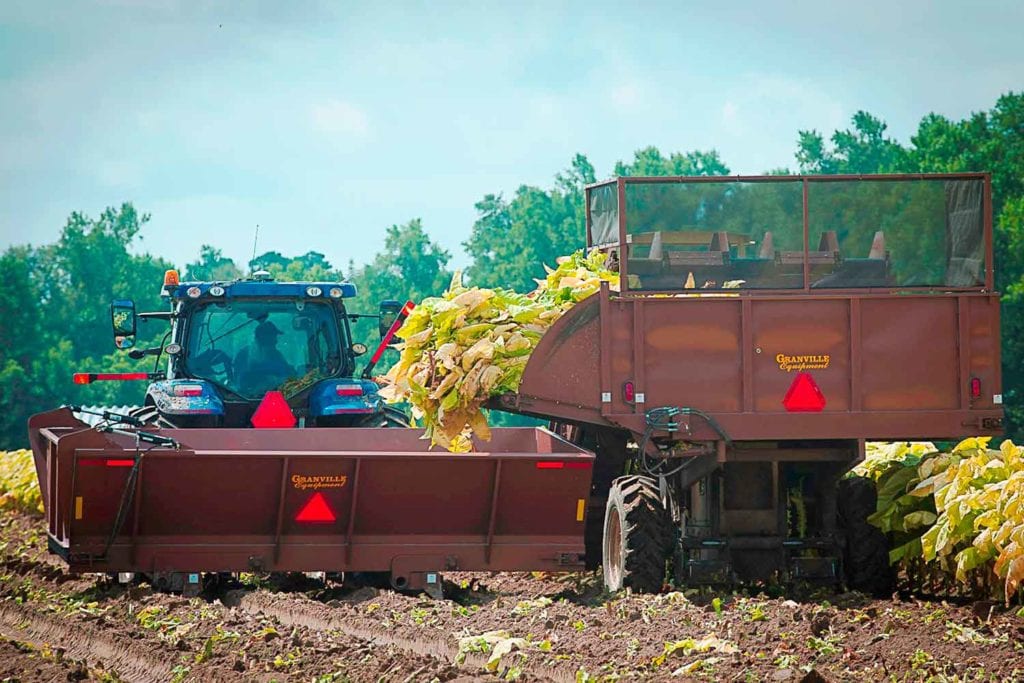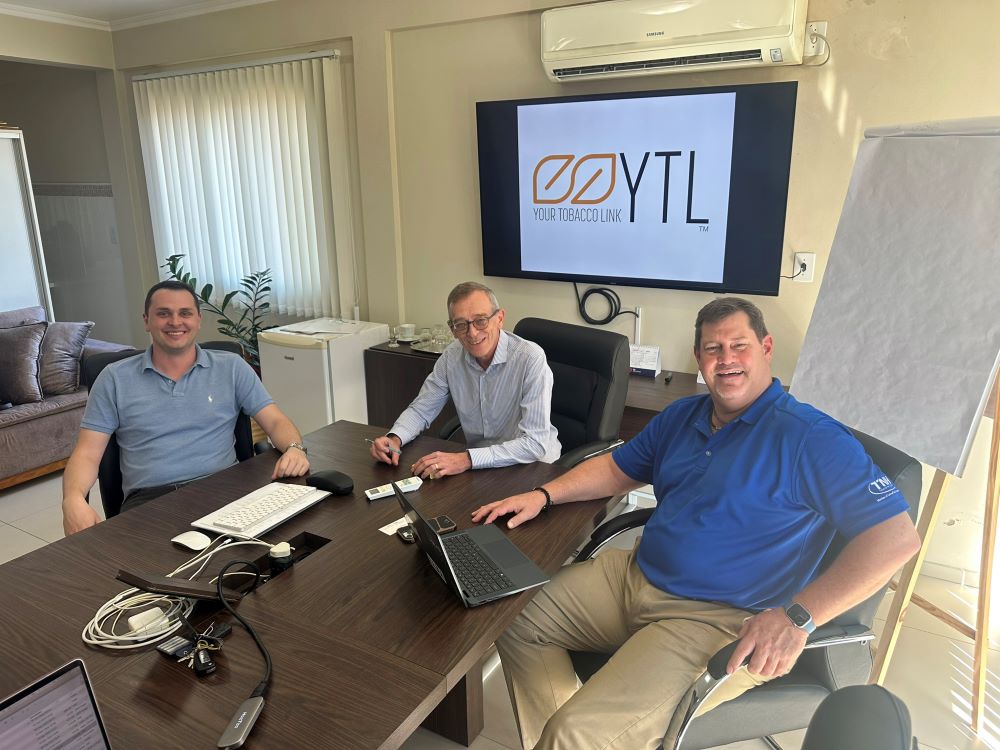
Newly created Your Tobacco Link harnesses the strengths of JEB International and Tobacco Trading and Services.
By Taco Tuinstra
The concept for the merger was sketched on a napkin during a dinner in Antwerp. “It was very old-school tobacco,” recalls Jay Barker, founder of U.S.-headquartered JEB International Tobacco Co. and one of the partners in the new business.
Yet the resulting company, Your Tobacco Link (YTL), is anything but old school. Operationally and administratively headquartered in Santa Cruz do Sul, the epicenter of tobacco cultivation in Brazil, YTL has been designed with the modern, rapidly changing leaf market in mind. It is lean, well connected and fleet footed, ready to scour the globe at a moment’s notice for the right tobacco at the right price. “We have an unrivaled capacity to secure almost any tobacco,” says Franz Demeulemeester, a key executive who came from YTL’s other predecessor company, Belgium-based Tobacco Trading & Services (TTS).
That ability stems from the rich experience and expansive professional networks of JEB and TTS. Both companies have been in business for more than two decades, but each has different strengths and focus areas. “TTS can supply leaf out of 36 origins, including quite a few niche markets that are difficult to penetrate,” says Demeulemeester. Its sourcing areas include off-the-beaten-path origins such as Azerbaijan, Pakistan and Bangladesh, for example. One area the company was struggling in, however, was the United States—a market where JEB was strong. “Jay had customers we did not have and vice versa,” says Demeulemeester.
By combining their assets, the partners reckoned they could step up their service to their customers. “We saw lots of synergies between what JEB and TTS were doing; it is one of those rare instances where one plus one truly equals three,” says Barker, noting that in some mergers, “one and one doesn’t even equal two.”
Despite the obvious advantages, the “marriage” didn’t happen overnight. Rather, it was preceded by a long courtship. Barker had been running JEB’s Brazilian operations from an office in Santa Cruz do Sul. As the work mounted, he started contracting ever more of it to TTS’ logistics department. A full merger seemed the next logical step, but Barker, a sharp businessman who values his independence, hesitated. The case for joining forces proved too compelling, however, and as time went by, he came around. “I thought, why not; it actually makes a lot of sense,” says Barker.
He has not regretted the move. In the short time since its creation, YTL has already expanded, enlarging its footprint in Brazil with a more robust farmer base and entering Malawi with new growing operations, for example. “Now we also have Zimbabwe on our radar,” says Barker.
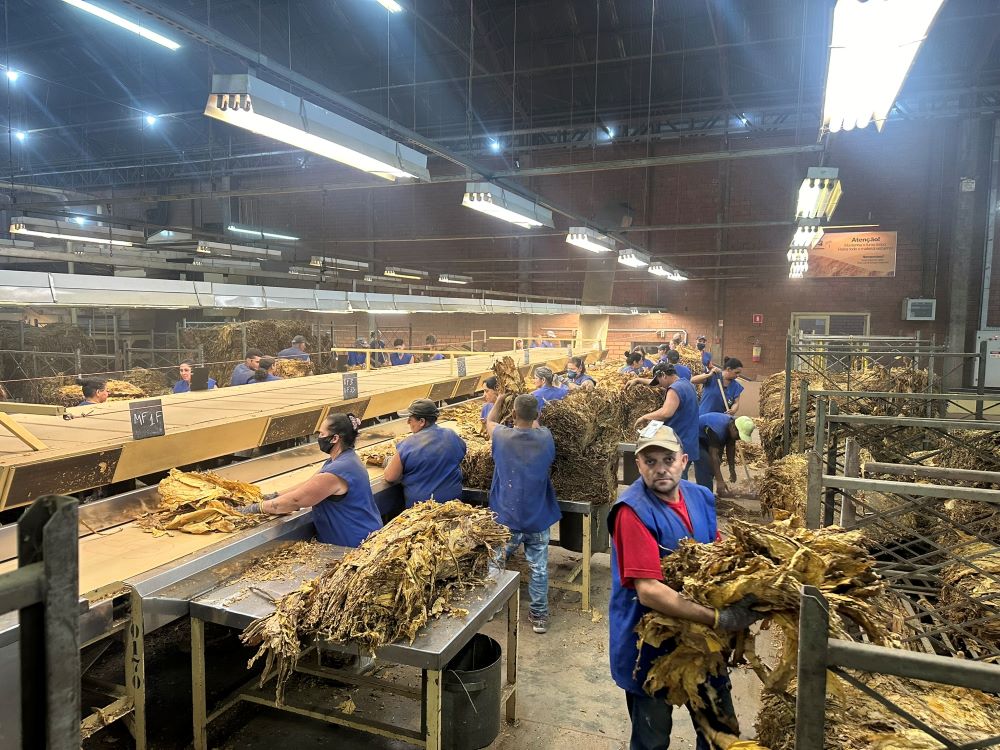
Deep Experience
In addition to an extensive network of global origins, the new company can draw on profound industry knowledge. “Annoyingly for Jay, he is dealing with elderly people,” jokes Demeulemeester, who started his tobacco career in 1984, cleaning a sample room in Santa Cruz do Sul. “TTS has a lot of, let’s say, experienced people.” Add up the tobacco tenures of just the company’s most senior executives, which also includes industry veteran John Derek Visser, and the tally handsomely exceeds 150 years.
Which is not to say that the company’s management is dominated by gray-hairs. Aware of the importance of succession planning, YTL has been actively recruiting a new generation of leaders. That crop includes professionals such as Lucas Dockhorn, the scion of a prominent local tobacco family who unlike some of his contemporaries preferred to stay in the Santa Cruz do Sul region rather than move to a city.
“‘Tobacco’ is truly in my blood,” says Dockhorn, referring to the tendency of tobacco leaf merchants to strongly identify with their profession. Despite the industry’s negative public image (even in tobacco powerhouse Brazil), it has been surprisingly easy to attract young people to the business, according to Barker. “It can be harder to get a bank to deal with your business than to find a new young guy,” he marvels.
We saw lots of synergies between what JEB and TTS were doing; it is one of those rare instances where one plus one truly equals three.
Competitive Strengths
Because of its wide variety of sourcing areas, YTL can offer customers substitutes when supply in one area is either short or expensive, or both, as was the case in Brazil this season (see “The Great Scramble,” Tobacco Reporter, May 2024). “We have not only the ability to offer those alternatives but also the knowledge to guide customers to the appropriate replacements—that you can replace BO1 grades from Brazil with Chinese tobacco from the Hainan region, for example,” says Demeulemeester.
Rather than focusing on individual transactions, YTL is keen to establish long-term, friendly working relationships with its customers. “We will take the job from A to Z,” says Demeulemeester. “To us, business is about more than just buying the best quality for the best price. We can help with logistics or propose better freight rates, for example; you will be surprised how creative we can be.”
Low overheads and short communication lines are additional advantages. “We are very flexible and quick to act,” says Barker, explaining that what the company’s sales team lacks in size it compensates for with ambition. To keep down its expenses, YTL outsources leaf processing. This marketing season, it contracted with Brasfumo in Venancio Aires, but the company has worked with other partners as well. Pointing to the excess capacity in southern Brazil, Barker says third-party processing is a sensible and cost-effective solution for YTL and its customers.
As in every merger, both parties faced a learning curve as the companies came together. For Barker, the deal presented an opportunity to learn about new tobacco origins, including some he wasn’t aware of before as leaf suppliers. “Azerbaijan, for example, is a little gold mine with a very solid supply chain,” he says. “I didn’t even know they grew tobacco.” To familiarize himself with all those areas, Barker traveled more in 2022 than he had in many years. “It’s been an exciting journey for me,” he says, stressing the continued importance of face-to-face meetings even in the Zoom era. The TTS team, in turn, was impressed by the dexterity of JEB’s operations. “The decision-making process is much quicker at JEB,” says Demeulemeester. “That’s definitely a plus point for the customer.”
The merger remains a work in progress. Tobacco is a notoriously conservative business, and some customers need time to approve new suppliers, even if they have known the people running those businesses for many years. For the time being, customers of YTL’s predecessor companies will have the option to continue doing business with either JEB or TTS. “The Idea is to eventually have everything under one umbrella—but if needed, we still have the mechanisms to use both JEB and TTS,” says Barker, who expects the merger to be fully completed within a year.
In the meantime, YTL is already thinking about the future. Among other projects, the company is considering expanding into supplemental agricultural commodities, such as hemp fiber and industrial hemp. Such initiatives will provide the firm with additional streams of income in the medium term while also protecting it against the impact of declining global cigarette sales in the long run.
This, in turn, fits well with the partners’ shared ambition to leave a legacy. “Our goal is to create a sustainable company where our youngsters will have a good future,” says Barker. “The decisions we make today will have a real impact on these people and their families. Our job is to provide a stable foundation.” That means being creative and thinking outside the box while at the same time being realistic about the possibilities. “We’ll be chasing real opportunities, not rainbows,” says Barker.


